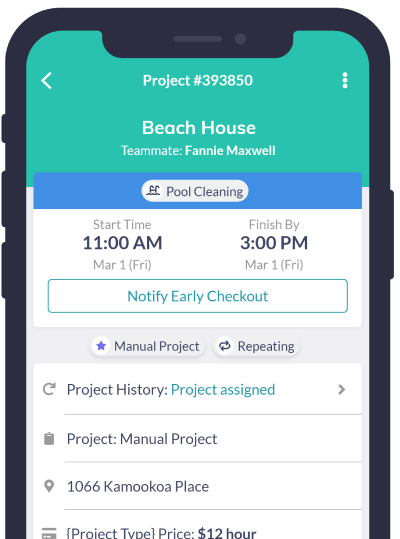Is a Vacation Rental Discount a Good Idea?
Some vacation rental industry experts argue that discounts aren’t very effective and may actually harm your reputation or your reviews.
This seems counterintuitive — people love discounts. But studies have shown that for some consumers, any kind of sale, especially on lodging, can spark suspicion that there might be something wrong with the rental. What’s more, if a consumer makes the purchase, the “discount” might make the guest overly critical.
In addition, some vacation hosts feel nervous about offering discounts for fear that guests will take advantage of them. For example, hosts worry that a guest who knows about discounts may demand a discount for a special event or because they were unhappy with their stay.

Discounts vs Dynamic Pricing
You may wonder what the difference is between a discount and the pricing adjustments that occur in your dynamic pricing strategy.
Dynamic pricing takes market factors into account to offer rates that are the most attractive to the right guests at the right time.
In most cases, your dynamic pricing tool (along with the help of a revenue manager, if you use one) will handle lowering prices when it makes the most sense, and do so based on market sensitivities and current events.
But that doesn’t mean that discounts don’t have a time and a place in the vacation rental industry.
When a Discount Actually Makes Sense
Using discounts for vacation rentals is like using salt in a dish: When used appropriately, it can add so much to the experience. Here are the instances when discounts may make the most sense for your short-term rental:
- When a booking window is closing: A little extra discount on last-minute dates can be just what a potential guest needs to get them to book, topping off your occupancy and earning you a little extra income. Even if the price is much lower than you would typically go, a booked night is more profitable than an unbooked one.
- To incentivize repeat guests: Discounts can be a great way to engage with past guests and encourage them to rebook. You can structure these discounts to be more “exclusive” or loyalty-based, particularly if you offer discounts through guest referrals or an actual loyalty program.
- To encourage guests to extend their stay: Adding a free night to cap off a longer stay, like a fifth or seventh day free, can give potential guests a little extra incentive to book a longer vacation, particularly if the fifth or seventh night would have been the lower-priced night anyway.
What About Airbnb Fees?
Extra charges that go beyond your nightly base rate are called vacation rental fees. Most often, these fees are used to compensate the host for providing additional services or amenities. There are two types of vacation rental fees: standard and custom.
Standard vacation rental fees are the most common and can include extra guest fees, cleaning fees, and pet fees. Custom vacation rental fees are any charges that go beyond standard fees and could include pool heating as an example.
“When making adjustments to your pricing, consider what fees may be appropriate in your unique situation. Name these clearly in your listing so that there are no surprises. These instances might include early check-in fees, late check-in fees, or pets.”

Do Airbnb Fees Prevent Bookings?
When you charge a fee on OTA booking websites, the fee is added to the total price at checkout, which makes it possible for travelers to know how much money they will be paying for in total.
The traveler’s point of view is important when considering fees for vacation rentals. Imagine the frustration of trying to calculate a stay, only to have the total significantly increase at checkout due to fees. When travelers experience this frustration, they might abandon the booking process and look elsewhere.
Still, fees alone don’t prevent bookings. In fact, a study by Vrbo found it’s not just the cost of staying at your property but also how much you are charging per night which can make all the difference in whether someone books or not.
What’s important is that you put a strategy in place when deciding on your fee structure.
How to Set an Effective Rental Fee Structure
Vacation rentals that charge a single fee have a 30% higher conversion rate than those with three or more fees. However, you may need to charge additional fees to cover the cost of extra services.
Below, find tips to help you be strategic about how you charge rental fees.
Keep Separate Fees to a Minimum
This will help keep people from being scared away by seeing a lot of fees.
Roll Standard Fees Into Your Base Rate
This will make it easier for people to see how much they will be paying in total, and it won’t be as expensive as if they were charged separately.
This strategy might be a little more tricky, however, as you’re going to have to include your cleaning or other expenses into the base rates for the property. In turn, potential guests browsing properties may be more drawn to similar listings that have a lower nightly rate — even though all the extra fees will be added at booking time.
Know When to Include a Discount or Fee
Discounts and additional fees may seem like a good opportunity, but they can sometimes have a significant amount of backlash. Knowing when the right time is to offer a discount or fee is the best way to go about this type of pricing strategy.
Before attempting a discount or additional fee, get a feel for the way your target market responds to such things. Do they automatically assume a property is of cheaper value if a discount is offered? Are they easily frustrated by additional fees to a property listing? The answers to these questions will inform your discount and fee structure.







